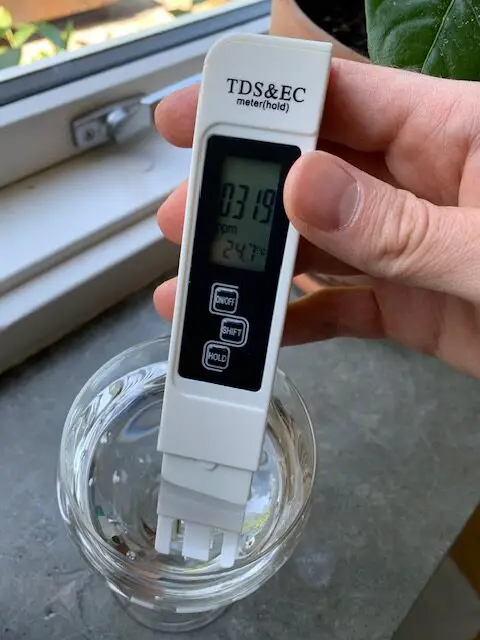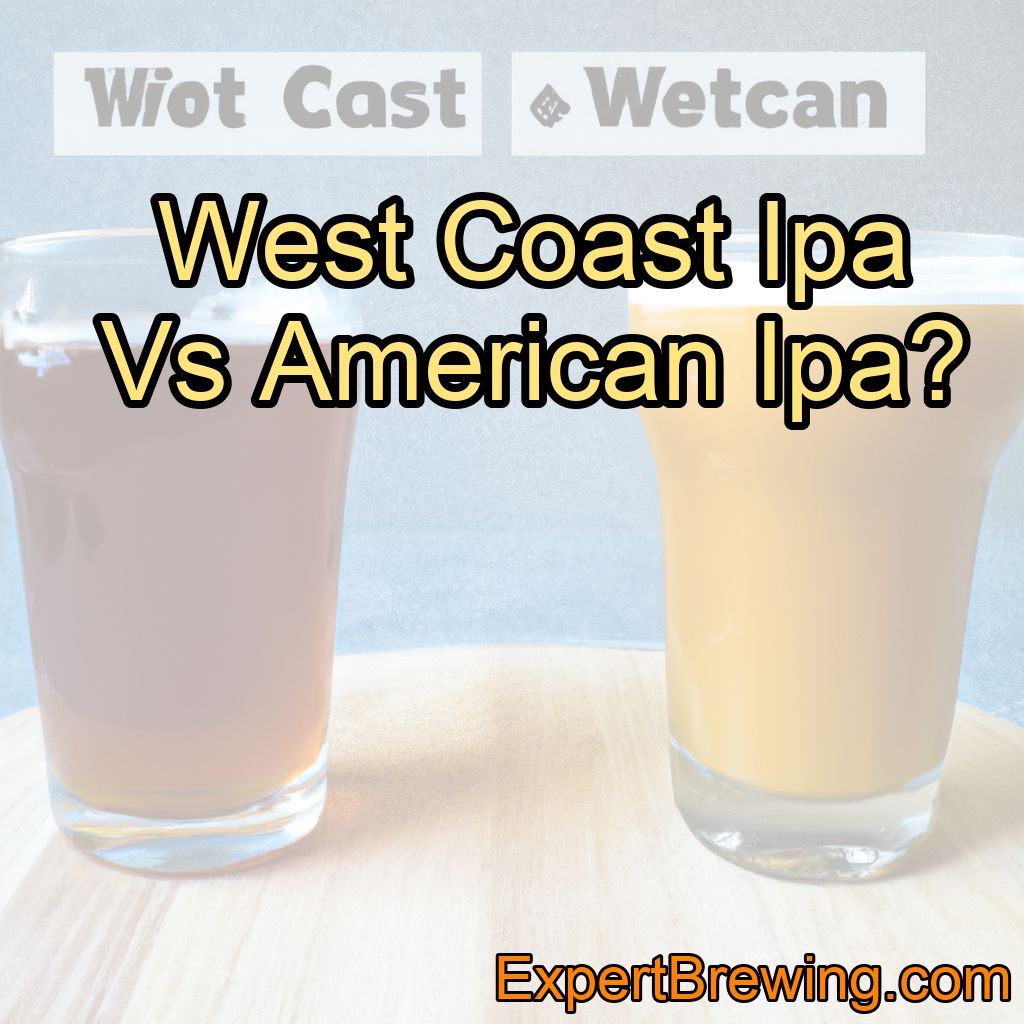As a passionate homebrewer, I am always on the lookout for ways to improve my brewing process and the quality of the beer I produce.
One of the most important and often overlooked aspects of brewing is the water profile used in the production of the beer.
The ideal water profile for a Belgian Dubbel should be moderately hard with a balanced mineral composition, including moderate levels of calcium, magnesium, and sulfate, and low levels of sodium and chloride.
In this blog post, I will be discussing the importance of the water profile for creating a delicious Belgian Dubbel, a rich and complex beer style that has been enjoyed by beer lovers for centuries.
Introduction to Belgian Dubbel
Belgian Dubbel is a classic beer style that originated in the Trappist monasteries of Belgium. This rich, malty beer is characterized by its deep amber color, complex flavors of dark fruit, caramel, and spice, and a moderately high alcohol content.
Its unique flavor profile is the result of a careful balance of ingredients, including specialty malts, Belgian candi sugar, and distinctive yeast strains. However, one of the most important elements in creating an authentic Belgian Dubbel is the water profile used in the brewing process.
The Importance of Water in Brewing
Water is the most abundant ingredient in beer, making up approximately 90-95% of its composition. The quality and mineral content of the water used in beer production can have a significant impact on the final product.
The ions present in water can affect various aspects of the brewing process, including mash pH, enzyme activity, yeast health, and the perception of flavors in the finished beer.
Different beer styles have distinct water profiles that are suited to their specific flavor profiles and brewing processes.
For example, the soft water of Pilsen, Czech Republic is perfect for creating the delicate flavors of Pilsners, while the high sulfate content of Burton-upon-Trent’s water is ideal for accentuating the hop bitterness in English Pale Ales. To create an authentic Belgian Dubbel, it is essential to use a water profile that complements the style’s unique characteristics.
Understanding Water Chemistry
Before diving into the ideal water profile for a Belgian Dubbel, it’s important to have a basic understanding of water chemistry and the key ions that play a role in brewing. The main ions to consider when creating a water profile for brewing are:
1. Calcium (Ca2+): Important for enzyme activity, yeast health, and precipitation of proteins and oxalates.
2. Magnesium (Mg2+): Contributes to enzyme activity and yeast health, but can cause off-flavors at high concentrations.
3. Sodium (Na+): Can enhance the perception of sweetness and fullness in beer, but can also cause off-flavors at high concentrations.
4. Sulfate (SO4²-): Accentuates hop bitterness and can add a dry, crisp finish to beer.
5. Chloride (Cl-): Enhances the perception of malt sweetness and fullness in beer.
Analyzing Your Brewing Water
Before adjusting your water profile for brewing a Belgian Dubbel, it’s important to know the mineral content of your brewing water. Many municipal water supplies provide water quality reports that include information on the concentrations of various ions. Alternatively, you can send a sample of your water to a laboratory for analysis, or purchase a water testing kit designed specifically for homebrewers.

If you want to learn more about measuring TDS and water quality at home, I did write a longer more general article about water hardness in brewing.
Ideal Water Profile for Belgian Dubbel
As mentioned earlier, the ideal water profile for a Belgian Dubbel should be moderately hard with a balanced mineral composition. The following are general guidelines for the target ion concentrations in your brewing water:
- Calcium (Ca2+): 50-100 ppm
- Magnesium (Mg2+): 10-30 ppm
- Sodium (Na+): 10-50 ppm
- Sulfate (SO4²-): 50-150 ppm
- Chloride (Cl-): 10-50 ppm
It’s important to note that these values are not set in stone and can be adjusted to suit your personal taste and brewing process. The key is to maintain a balanced mineral composition that supports the complex flavors of a Belgian Dubbel, without overpowering or detracting from them.
Adjusting Your Water Profile
Once you have analyzed your brewing water and determined the necessary adjustments to achieve the ideal water profile for a Belgian Dubbel, you can use various water treatment methods to make these changes. Some common methods for adjusting brewing water include:
1. Dilution with distilled or reverse osmosis (RO) water: This can help reduce the concentrations of unwanted ions in your brewing water.
2. Addition of brewing salts: Gypsum (calcium sulfate), calcium chloride, and epsom salt (magnesium sulfate) are commonly used to adjust the concentrations of calcium, magnesium, sulfate, and chloride in brewing water.
3. Acidification: The use of lactic or phosphoric acid can help lower the pH of your brewing water, which is particularly important for achieving the correct mash pH.
Mash pH and Belgian Dubbel
Achieving the correct mash pH is essential for optimal enzyme activity and extraction of flavors from your malt during the mashing process. For a Belgian Dubbel, the target mash pH is typically between 5.2 and 5.6. The mineral content of your brewing water, as well as the acidity of your malt, will influence the mash pH. If necessary, you can use acidulated malt or lactic acid to lower the mash pH to the desired range.
The Impact of Water Profile on Belgian Dubbel Flavor
A well-balanced water profile is crucial for bringing out the rich, complex flavors of a Belgian Dubbel. Moderate levels of calcium and magnesium support enzyme activity and yeast health, while moderate sulfate levels help to balance the malt sweetness with a gentle bitterness. Low levels of sodium and chloride ensure that the beer’s delicate flavors are not overshadowed by excessive saltiness or harshness.
In conclusion, the ideal water profile for a Belgian Dubbel is moderately hard with a balanced mineral composition. By understanding and adjusting the water profile for this classic beer style, you can create a delicious, authentic Belgian Dubbel that rivals those produced in the monasteries of Belgium. To wrap up, here are 10 key facts about the water profile for Belgian Dubbel:
1. The ideal water profile for a Belgian Dubbel should be moderately hard with a balanced mineral composition.
2. Water is the most abundant ingredient in beer, making up approximately 90-95% of its composition.
3. The ions present in water can affect various aspects of the brewing process, including mash pH, enzyme activity, yeast health, and the perception of flavors in the finished beer.
4. Different beer styles have distinct water profiles that are suited to their specific flavor profiles and brewing processes.
5. The main ions to consider when creating a water profile for brewing are calcium, magnesium, sodium, sulfate, and chloride.
6. Analyzing your brewing water is essential for determining the necessary adjustments to achieve the ideal water profile for a Belgian Dubbel.
7. Common methods for adjusting brewing water include dilution with distilled or reverse osmosis (RO) water, addition of brewing salts, and acidification.
8. The target mash pH for a Belgian Dubbel is typically between 5.2 and 5.6.
9. A well-balanced water profile is crucial for bringing out the rich, complex flavors of a Belgian Dubbel.
10. By understanding and adjusting the water profile for this classic beer style, you can create a delicious, authentic Belgian Dubbel that rivals those produced in the monasteries of Belgium.
FAQs
What is the best Abbey Dubbel?
I personally like Abbey Dubbels including Westmalle Dubbel, Rochefort 8, and Chimay Red.
What is the flavor profile of Belgian Dubbel?
Belgian Dubbel is a dark, malty beer with a rich and complex flavor profile that includes notes of caramel, dark fruit, and spices such as clove and nutmeg. It may also have a slight sweetness and a subtle bitterness from the hops.
What is the best malt for a Belgian Dubbel?
The best malt for a Belgian Dubbel is typically a combination of Pilsner malt and Munich malt, with some specialty malts such as Special B or Aromatic malt added for complexity and depth of flavor.
What is the water profile of a Belgian Dubbel?
A Belgian Dubbel typically has a water profile that is high in calcium and sulfates, which helps to enhance the maltiness and balance the sweetness of the beer.
What yeast is best for Belgian dubbel?
Belgian abbey yeast, such as Wyeast 1214 or White Labs WLP500, is typically the best choice for brewing a Belgian dubbel.
How do I find my water profile for brewing?
You can find your water profile for brewing by sending a sample of your water to a laboratory that specializes in water testing for brewing purposes. Alternatively, you can use a water testing kit to test your water at home and then use brewing software or online calculators to determine the ideal water profile for your specific beer style.




